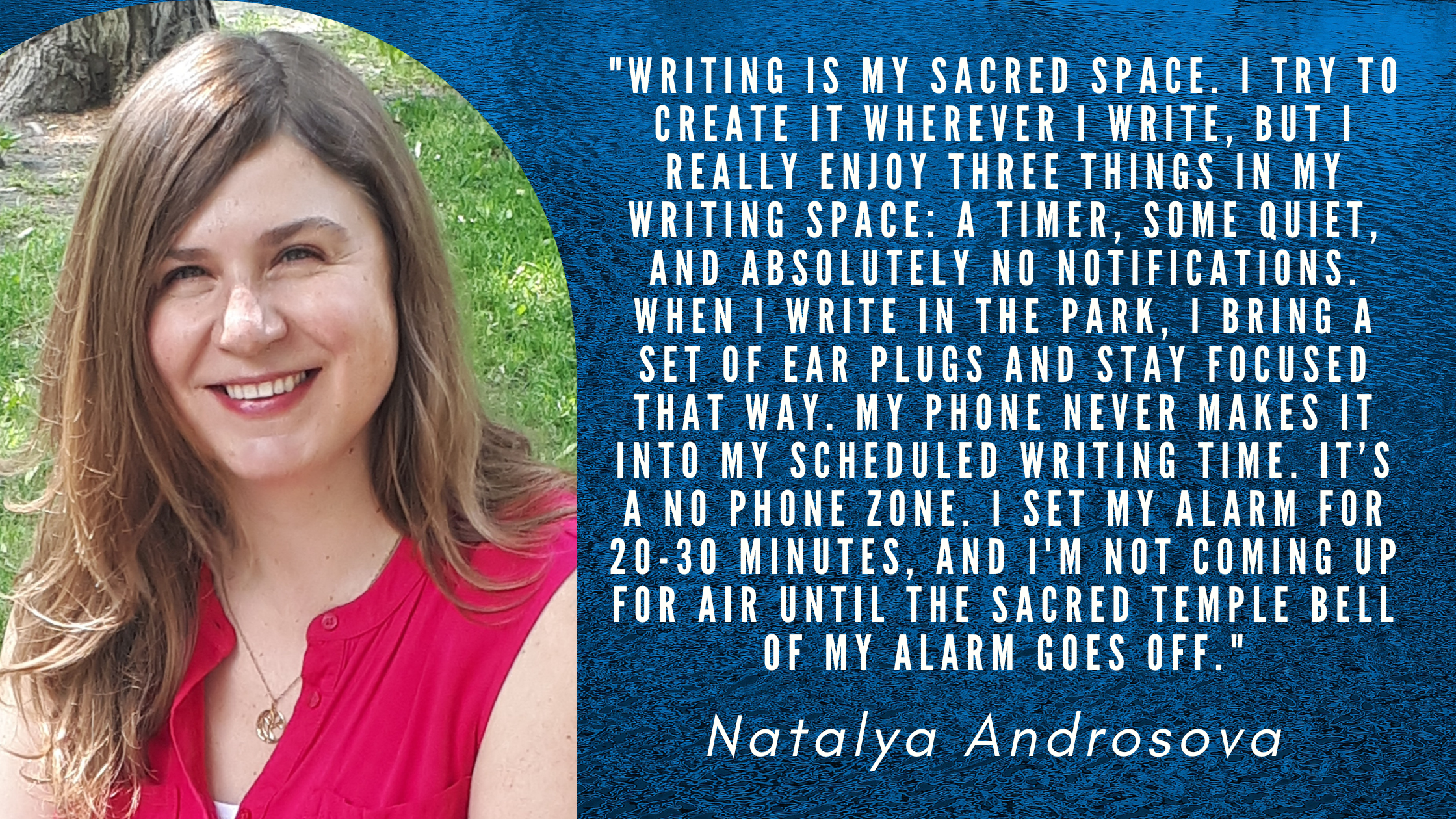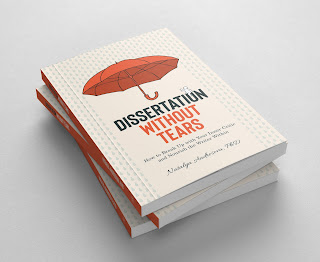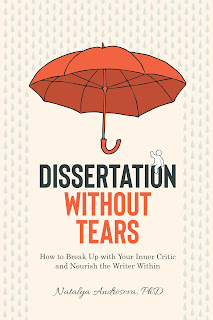Author Interview - Natalya Androsova
Natalya Androsova is
an award-winning writing and dissertation coach with 25 years of experience.
Her passion is helping writers become more courageous, authentic, and kind to
themselves and their writing. She believes that instead of nourishing the
relationship with our inner critic, we can nourish the relationship with our
writer within.
She lives in Toronto, Canada, and when she is not writing or meditating, she loves to play tennis, practice yoga, or sit by the water and cloud watch for hours.
Genre: Non-Fiction, Creativity, Self-Help for aspiring, stuck, and burnt out writers.
Q1: What is the name of your latest book and what inspired it?
My latest book is called Dissertation Without Tears: How to Break Up with Your Inner Critic and Nourish the Writer Within. It dispels 58 of the most common and toxic writing myths the inner critic likes to whisper in our ear when we’re trying to write.
What inspired it was seeing my coaching students suffer from believing the harsh voice of their inner critic. I could see clearly that the suffering was self-imposed and optional, and after two decades of coaching, I’ve seen time and again how letting go of these myths brings immediate relief, creates writing momentum, and results in completion of long-awaited projects.
Everyone deserves to feel the joy and freedom of a healthy and sustainable writing practice, so I wanted to share all my secrets in this book. I only published it in June and am deeply grateful for the generous reception and reviews already pouring in.
Q2: What do you need in your writing space to help you stay focused?
Writing is my sacred space. I try to create it wherever I write, but I really enjoy three things in my writing space: a timer, some quiet, and absolutely no notifications. When I write in the park, I bring a set of ear plugs and stay focused that way. My phone never makes it into my scheduled writing time. It’s a no phone zone. I set my alarm for 20-30 minutes, and I'm not coming up for air until the sacred temple bell of my alarm goes off.
Q3: If you could spend a day with another popular author, whom would you choose and why?
Since Julia Cameron and Natalie Goldberg are good friends, I’d love to spend some time with both of them. Is that too much to ask?🙈
They have both radically changed my writing practice by allowing me to fall in love with my writing and discover the joy I had never known before. Natalie’s beautiful comparison of writing to a meditation practice and Julia’s joyful and non-apologetic voice were my inspiration to take a chance on myself. I’d love a chance to express my gratitude to both of them and share how they have changed my life.
Q4: What, to you, are
the most important elements of good writing?
Authenticity, flow, clarity. A writer’s connection to themselves, a strong voice, a point of view, and their truth and light shining forth from every sentence. I want to be pulled in by their words. I want to recognize myself in their experience. I want to forget I’m reading a book so I can live it through their eyes and their heart.
Q5: What are common
traps for new authors?
Oh boy. Where do I start? I coach writers for a living, and I’ve been writing for over 30 years, so my list is long.
Perhaps the most common offender I’ve seen in myself and others is self-doubt. In all its forms. Doubting your desire to express yourself, doubting your ability, your sense of worth or belonging.
The second most harmful trap is staying in the verbally and mentally abusive relationship with our inner critic. We don’t know any better until someone tells us that this relationship is optional, and we’re free to leave! That’s why I’ve been screaming from the rooftops, “Writing is not a form of punishment. It’s a form of flying! Break up with your inner critic today and fall in love with your writing!”
Q6: What is the most valuable piece of advice you’ve been given about writing?
To trust my own heart, my own hand, my own experience, and the writing process itself in the face of uncertainty or expert advice. It’s a big one, and I’m still working on it.
To be open to taking risks, trying, and failing while trusting that I can discover everything I need to know by being consistent, open, and dedicated to learning through inevitable challenges.
To remain kind to myself and my writing as I grow.
Q7: How much research did you need to do for your book?
I’ve always been fascinated by the writing process. I immersed myself in learning about it for six years during my PhD, spending a lot of time in archives reading authors’ handwritten reflections on their practice.
My books seem to be emerging in response to this fascination with the writing process, my own practice, and my coaching conversations with hundreds of writers. So it feels like my research spans 30 years of writing, reading, teaching, and coaching, and my books are just a natural extension of living a writer and a writing coach’s life.
Q8: At what time of
the day do you do most of your writing?
It depends a lot on where I am in the project, but afternoons seem to work well for me most days.
Q9: What are you
working on now?
I’m working on a draft of a book for anyone struggling with writer’s block. I’m identifying 20 different reasons for writer’s block and offering unique solutions and examples for overcoming each unique challenge.
I find myself including quite a few practical ideas and writing prompts in each section to jumpstart your writing when facing a particular block. This is quickly becoming a workbook/handbook where a reader can just focus on the specific block they are experiencing, find a solution, and jump right back into their writing. That’s the hope anyway! I didn’t intend to write it this way, but I love the practical direction the book is suggesting.
Q10: What are you currently reading?
I’m currently
rereading I Am That by Nisargadatta Maharaj. Probably for the 5th time.
It’s the book that eclipsed all other books. Except for one other - Be As
You Are by Ramana Maharshi.
Books by Natalya Androsova:
The Gratitude Effect, co-author with Dr. Demartini, 2008
7 Minutes to Freedom: Simple Writing Meditations to Liberate Your Writing and Your Life, 2021
Dissertation Without Tears: How to Break Up with Your Inner Critic and Nourish the Writer Within, 2022
Current WIP Working Title: 20 Easy Ways to Overcome Writer’s Block and Start Writing Today, 2023
To find out more about Natalya Androsova follow the social media links below. Keep scrolling for an excerpt from Dissertation Without Tears.
Writing is hard. Period!
The more you frame
the marathon as a stressful experience, the more negative messages you'll
receive. But it's just as easy to frame it as a positively challenging journey.
–
Jeff Galloway
We all know that
there are times when writing feels impossible. I’m not saying it’s easy. I’m
inviting you to discover why it’s hard for you personally so you can understand
your process and change it.
Let’s start our
detective work at the beginning. Where did you learn that writing is hard? When
did you start believing it? Writing is not easy or hard by default. You can
give it any meaning you want. You can treat it as punishment and torture
yourself in the process, but the good news is this torture is self-imposed and
completely optional. With the right tools, you can experience writing as
inspiring, fulfilling, and meaningful. You can reprogram your relationship with
your writing and enjoy every minute of your work. But you must take
responsibility for observing your writing process, becoming aware of the
beliefs that make it harder, and using this new awareness to create new habits.
Have you investigated
what makes writing hard for you? Do you keep a list of your painful beliefs
about writing? I want you to start one right now. It’s easy. Every time you
feel that writing is hard, ask yourself why, and write down the specific
belief. Uncovering and reframing these beliefs will allow you to build a
healthy writing practice that will support both your goals and your
wellbeing.
In a perfect world,
what would your writing process feel like? How would you know that you were
enjoying the writing process? If you can imbue it with creative freedom, flow,
authenticity, and clarity, you would run to your desk the moment you wake up.
How can you take responsibility for your own empowerment and create an
enjoyable writing practice that supports your fulfillment and stimulates your
curiosity?
[…]
I hope you can once again find joy in your writing. It’s not only possible—it’s there waiting for you. And once you find it, it’s intoxicating, and it doesn’t go away.
Enjoy this interview? Please consider Buying Me a Coffee to keep them coming :)

.jpg)





Comments
Post a Comment